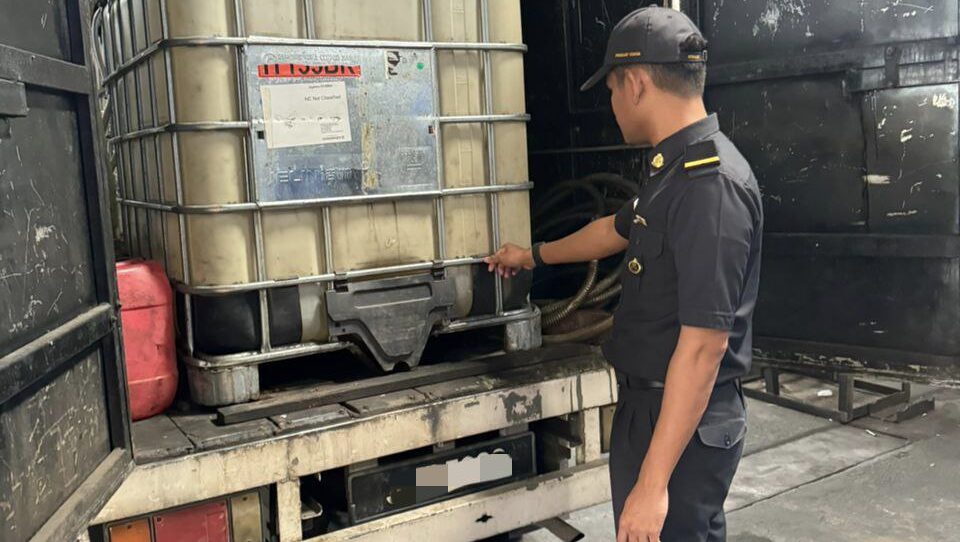MIRI – Authorities have dismantled a diesel smuggling syndicate operating along the banks of the Miri River, seizing nearly half a million litres of fuel in a joint enforcement raid.
The operation, carried out by the Ministry of Domestic Trade and Cost of Living (KPDN) together with the Royal Malaysian Police (PDRM), took place at around 11.30am yesterday. Officers discovered that the syndicate was using unlicensed ships and storage facilities to illegally stockpile subsidised diesel.
According to Sarawak KPDN director Matthew Dominic Barin, the enforcement team successfully seized 448,880 litres of diesel, a vessel, a lorry, a four-wheel drive, several storage tanks and various equipment suspected to be used for fuel smuggling activities.
“The total value of the seizure is estimated at RM1.27 million, including diesel, vehicles and other equipment,” Matthew said in a media statement.
He further revealed that initial investigations confirmed the store and ship involved had no valid licence, permit, or letter of approval from the Controller of Supplies to handle scheduled controlled goods.
All confiscated items are now under investigation to determine the individuals or groups responsible, as well as to trace the source of supply and the distribution network linked to the syndicate.
The case is being probed under Section 20(1) of the Control of Supplies Act 1961, which prohibits storing controlled goods at unlicensed premises.
Matthew stressed that the authorities will continue to act firmly against those attempting to profit illegally from fuel subsidies meant for the public.
“We will not compromise with any individual or syndicate involved in diesel fraud in Sarawak,” he added.
This latest bust highlights ongoing efforts by enforcement agencies to curb fuel smuggling activities that cause heavy losses to the government and disrupt the fuel supply chain.

